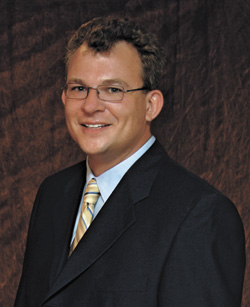Do you snore a lot? Find yourself waking up several times in the middle of the night? Is your partner concerned about your breathing rhythms while you sleep? You probably haven’t connected your ability to sleep with your dental care, but it’s possible that a problem with your mouth could be the culprit behind your disturbed sleep patterns. Sleep apnea is a serious issue and should be diagnosed by a doctor. But it’s possible that your mouth is part of the problem, so it’s a good idea to check with your dentist too. Here, Flintlock Dental will take a look at sleep apnea and how dental devices might help get you a better night’s sleep!
What is Sleep Apnea?
Obstructive sleep apnea is a sleep disorder that causes a person to stop breathing periodically throughout the night due to a physical obstruction in the airways. These stops in breathing can last up to 10 seconds and result in snores, gasps, or choking sounds once the person catches his or her breath.
Your muscles relax when you sleep, giving your body a much-needed break from all the strain you put on it throughout the day. The same holds true for the muscles in your airways. For some people, the muscles in their mouth and throat relax to the point that they will block the airways, making it harder to breath.
Side Effects of Sleep Apnea
There are several health problems associated with sleep apnea, so it’s very important to get the disorder treated. Some of the serious issues that can arise include:
- High blood pressure
- Increased risk of diabetes
- Heart disease
- Heart attack
- Stroke
- Death
If you’re unsure whether or not you’re suffering from sleep apnea, there are a few more minor side effects to watch out for. If you notice that you have one or more of these side effects, you should bring them up with your doctor and your dentist to have the situation assessed:
- Teeth grinding
- Receding gums
- Redness of the throat
- Chronic dry mouth or sore throat
- Chronic snoring
- Small jaw
- Tongue with rough edges
Along with the symptoms mentioned above, there are some other dental diseases that have been linked with sleep apnea. Periodontal disease is sometimes a sign of sleep apnea. If your teeth have a lot of decay, your dentist might check to see if it’s due to chronic teeth grinding. If you require a prescription mouthwash for dry mouth, this could be a sign that you have sleep apnea as well. Another factor to consider is that women who don’t usually suffer from sleep apnea can start to have a problem during pregnancy. If this is the case, you should consult with your doctor to see if there are any short-term solutions to try.
Dental Devices for Treating Sleep Apnea
If your dentist thinks you may have sleep apnea, he or she might suggest a sleep study. Even though most dentists are able to spot and diagnose the symptoms of sleep apnea in their patients, it’s up to a medical doctor to determine whether or not they actually have this condition. A sleep study will help determine what steps need to be taken next.
Once this condition has been properly diagnosed, there are a couple of options that your dentist may recommend that can help you sleep better. An over the counter mouth guard worn at night may be a simple and effective solution. For the best (and most comfortable) results, you should splurge for one with a custom fit to your mouth. Wearing a mouth guard at night can help stop the grinding of your teeth, along with the cavities, jaw pain, and headaches that come along with it.
More advanced mouth guards can also help with sleep apnea. One option is a mandibular advancement device (MAD). It protects the teeth like a regular mouth guard, but also has hinges that keep the lower jaw and tongue from falling back, closing the airway. Another device, called a tongue-retaining mouthpiece, holds the tongue in place more sturdily. This device is usually used by people who can’t have their jaw positioned forwards with a MAD.
Some people find such dental devices to be more comfortable and convenient than the traditional CPAP mask that’s often used to treat sleep apnea. However, others find that these devices are uncomfortable and leave their mouths sore.
If you find that you’re experiencing symptoms of sleep apnea, bring it up with both your doctor and your dentist. Although it might not seem like a big deal, this medical condition can lead to much worse conditions than tiredness. Your dentist can help point you in the right direction for getting everything you need to combat sleep apnea and let your family get a good night’s sleep.
If you’re interested in more articles about oral health, check out Flintlock Dental’s other blogs, such as this one that goes over how dental care changes from infancy to adulthood!
